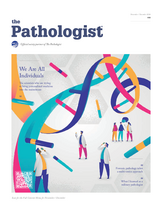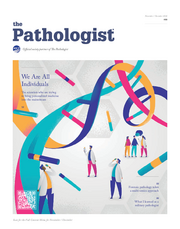AI-based Digital Diagnostics for the Detection of Prostate Cancer
sponsored by Paige
November 11, 2020
12pm EST / 5pm GMT
Presentation length: 60 minutes
Prostate cancer, the most frequently diagnosed cancer in 105 countries and the leading cause of death in 46 countries worldwide, is diagnosed by core needle biopsy. The evaluation of these tissue samples by pathologists is both labor-intensive and subjective, especially when cases show small, low grade foci of cancer, but is nevertheless crucial to patient management because various parameters obtained from evaluation of these biopsies constitute important inclusion and exclusion criteria for active surveillance in many cases. As many diagnostic laboratories face shortages of pathologists, improvements in diagnostic accuracy and time savings are required to meet the increasing demands, like in the case of prostate cancer, for pathology services.
Paige is a computational pathology company and is leading and enabling the next generation of pathology. Paige Prostate (CE-IVD, investigational use only in the United States) is a prostate cancer detection system that uses AI technology to enable pathologists to detect prostate cancer in biopsies. The AI solutions from Paige require no site-by-site calibrations and are fully integrated in the diagnostic workflow with the FullFocusTM viewer, for a simplified and cost-effective way to realize the benefits of computational pathology today.
In this webinar, a recent clinical study is presented that analyzes how the use of Paige’s cancer detection technology by general pathologists to interpret prostate needle biopsy slides impacts sensitivity and specificity, as well a time to review. In addition, information on the Paige Platform, a comprehensive enterprise imaging solution that is inclusive of a viewer and storage capabilities will be presented.
Learning Objectives:
- During this webinar you will learn about Paige, the Paige Platform as well as Paige Prostate and the potential benefits of Paige’s technology on digital and computational pathology and for your practice.




















